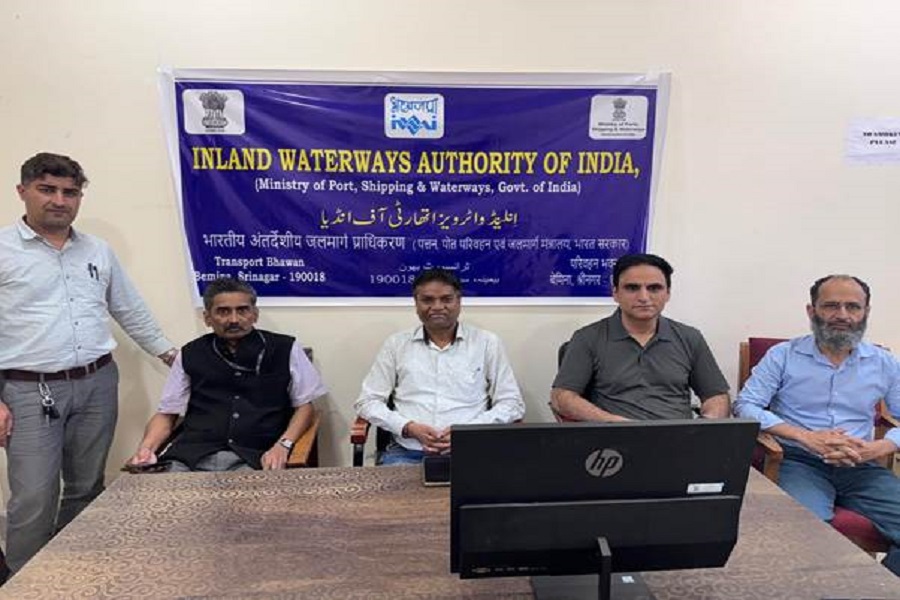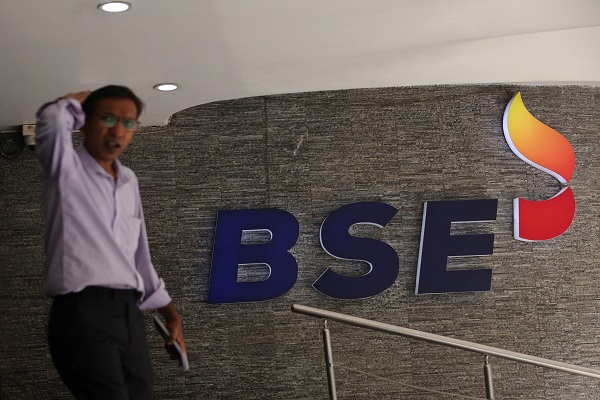Dhanlaxmi Crop Science coming with IPO to raise Rs 23.80 crore

Dhanlaxmi Crop Science
- Dhanlaxmi Crop Science is coming out with an initial public offering (IPO) of 43,28,000 equity shares in a price band Rs 52-55 per equity share.
- The issue will open on December 9, 2024 and will close on December 11, 2024.
- The shares will be listed on SME Platform of NSE.
- The face value of the share is Rs 10 and is priced 5.20 times of its face value on the lower side and 5.50 times on the higher side.
- Book running lead manager to the issue is Finshore Management Services.
- Compliance Officer for the issue is Chhayaben Ankitkumar Pujara.
Profile of the company
Dhanlaxmi Crop Science is a technology driven seeds company that develops, produces, processes and sells seeds for a range of field crops and vegetables, have more than 18 years of experience in the Indian seeds industry. It integrates traditional breeding techniques with biotechnology tools and seek to produce hybrid and open pollinated variety field crops and vegetable seeds that deliver higher yields, enhanced product quality and higher levels of pest and disease tolerance over naturally occurring varieties. Its seeds are suitable for varying agroclimatic conditions, such as water availability, crop duration and soil attributes, across different geographic regions in India.
It produced, as of September 30 2024, seeds for 24 different field crops and vegetables and has operations in 5 states across India. The sale of cotton seeds contributes the majority of its revenue from operations, contributing 95.64%, 76.78%, 71.47% and 64.73% of its revenue from operations in September 30, 2024, Fiscal 2024, 2023 and 2022, respectively. Its product portfolio includes field crop and vegetable seeds for Cotton, Wheat, Cumin, Bajra, Maize, Gram, Okra, Green Gram, SSG, Soyabean, Milky, Mustard, Groundnut, Black Gram, Guar, Castor, Sesame, Jowar, Coriander, Red Gram, Green Pea, Multifeed, Onion etc. Its research and development activities include conventional breeding programmes and the use of innovative biotechnology tools, which has driven the development of its diverse repository of germplasm, which has enabled it to develop an extensive portfolio of products.
As of September 30, 2024, the company had filed a total of five applications under the PPV & FR Act, including three for cotton, one for wheat and one for green gram. As of September 30, 2024, the company had received the following certificates of registration under the PPV & FR Act: Cotton hybrids, ZCH-511, 25D51 and 25D55 and their parents. Two applications of the company are in the testing stage, the final stage prior to certification. Through its research, it has successfully developed and commercialised several hybrid seed products for cotton, such as Advance and Agniveer, Dhanvarsha, which it met with commercial success because of their superior quality and yields relative to other cotton seed products at the time of their launch into the market. The sales of seeds for field crops other than cotton, such as Wheat, Cumin, Bajra, Maize presently constitute the remaining portion of its business. Over the period, it has registered significant growth in its sales of vegetable seeds and seeds of field crops other than cotton.
Proceed is being used for:
- Meeting working capital requirements
- Meeting the issue expenses
- General corporate purposes
Industry Overview
India is one of the major players in the agriculture sector worldwide and it is the primary source of livelihood for 55% of India’s population. Consumer spending in India will return to growth in 2021 post the pandemic-led contraction, expanding by as much as 6.6%. The Indian food industry is poised for huge growth, increasing its contribution to world food trade every year due to its immense potential for value addition, particularly within the food processing industry. The Indian food processing industry accounts for 32% of the country’s total food market, one of the largest industries in India and is ranked fifth in terms of production, consumption, export and expected growth. Foodgrain production in India touched 330.5 million metric tonnes (MT) in 2022-23 (third Advance Estimate). India is the world’s second largest producer of food grains, fruits and vegetables and the 2nd largest exporter of sugar. A total of 521.27 LMT rice has been anticipated for procurement for the upcoming KMS 2023-24, up from 496 LMT produced during the previous KMS 2022-23.
The Indian agricultural sector is predicted to increase to $24 billion by 2025. Indian food and grocery market is the world’s sixth largest, with retail contributing 70% of the sales. As per the First Advance Estimates for 2023-24 (Kharif only), total foodgrain production in the country is estimated at 148.5 million tonnes. Rabi crop area has from 709.09 lakh hectares in 2022-23 to 709.29 lakh hectares in 2022-23. In 2022-23 (as per the second advance estimate), India’s horticulture output is expected to have hit a record 351.92 million tonnes (MT), an increase of about 4.74 million tonnes (1.37%) as compared to the year 2021-22. The Agriculture and Allied industry sector witnessed some major developments, investments, and support from the Government in the recent past. Between April 2000 - March 2024, FDI in agriculture services stood at $3.08 billion.
In the next 5 years, the central government will aim $9 billion in investments in the fisheries sector under PM Matsya Sampada Yojana. The government is targeting to raise fish production to 220 lakh tonnes by 2024-25. Going forward, the adoption of food safety and quality assurance mechanisms such as Total Quality Management (TQM) including ISO 9000, ISO 22000, Hazard Analysis and Critical Control Points (HACCP), Good Manufacturing Practices (GMP), and Good Hygienic Practices (GHP) by the food processing industry will offer several benefits. Through the Ministry of Food Processing Industries (MoFPI), the Government of India is taking all necessary steps to boost investments in the food processing industry in India. Government of India has continued the umbrella PMKSY scheme with an allocation of Rs. 4,600 crore ($559.4 million) till March 2026.
Pros and strengths
Integrated seed processing unit with warehouse facility in one premise: The company’s seeds processing unit is equipped with seed sorting, grading and packing machines, its seeds processing facility includes warehousing to store seeds. The integrated seeds processing unit with required storage infrastructure to store the seeds help it to meet the demand as per the sowing season. The company’s plant is also strategically located and have access to logistic to transport its products.
Wide range of products backed by consistent quality: The company offers a wide range of seeds that includes major field crops grown in India like cotton, maize, wheat, bajra, cumin and others. It continuously adds new product variants which help it to cater the needs of its customers. The company is committed to provide best quality seeds which provides higher yield and productivity to the farmers. It treats the seeds with chemical like insecticides and fungicides to enhance consistent quality of the seeds.
Strong research & development capabilities: The company has been undertaking R&D for breeding high performance hybrid seeds. It has an experienced and professionally qualified R&D team who are engaged in full time research. Its R&D infrastructure includes 16 acres of farmland and lab facilities, which makes it a competitive R&D player in the industry. Other advantages include security whereby the hybrids are secured against misuse and piracy. The nature of the agri-inputs industry is such that it requires adequate protection of its germplasm and related operations. R&D on third party land carries a higher risk of bio-piracy.
Risks and concerns
Substantial revenues come from limited customers: The company has been majorly dependent upon a single customer which contributes almost 76.76%, 57.73%, 53.86%, 37.55% of total revenue from operations for six months’ period ended September 30, 2024 and for the financial year ended March 31, 2024, March 31, 2023, March 31, 2022. The company’s top ten customers accounted for about 87.99%, 67.36%, 62.45% and 51.88% of its revenue from operations for the six months’ period ended September 30, 2024 and In Fiscal 2024, Fiscal 2023 and Fiscal 2022. However, the loss of any significant customer would have a material effect on its financial results.
Seeds business is highly seasonal: The company’s business is seasonal in nature. Both raw material supplies and sales are seasonal, as its business is influenced by the traditional crop seasons in India. In India, majority of the farmers depend on monsoon for cultivation. Rainfall usually occurs during Kharif season and hence, the timing and seasonality of rainfall has an impact on the business of the company. Thus, it is subject to seasonal factors, which make its operational results very unpredictable. It recognizes revenues only upon the sale of its products. Empirically, the revenues recorded during planting and harvesting seasons are lower compared to revenues recorded during the periods following such seasons. During periods of lower sales activities, it continues to incur substantial operating expenses, but its revenues remain usually lower. Due to the inherent seasonality of its business, results of one reporting period may not be necessarily comparable with preceding or succeeding reporting periods.
Geographical constrain: The company majorly carries on its production activities only in the state of Gujarat. Apart from Gujarat, the company also carries production activities in the state of Gujarat and Andhra Pradesh on job work basis. Further, the company’s major customer base is concentrated in certain regions in the state of Telangana and Gujarat. Such geographical concentration of its business in these regions heightens its exposure to adverse developments related to competition, as well as economic and demographic changes in these regions which may adversely affect its business prospects, financial conditions and results of operations. It may not be able to leverage its experience in regions of Gujarat and Rajasthan to expand its operations in other parts of India and overseas markets.
Outlook
Dhanlaxmi Crop Science is a technology-driven seeds company that develops, produces, processes, and sells seeds for a range of field crops and vegetables. It has integrated Seed processing unit with warehouse facility in one premise. It also has wide range of products backed by consistent quality. Moreover, the company has proven track record of robust financial performance. On the concern side, substantial portion of the company’s revenues has been dependent upon few customers. The loss of any one or more of its major customers would have a material effect on its business operations and profitability. The seeds business is highly seasonal and such seasonality may affect its operating results.
The company is coming out with a maiden IPO of 43,28,000 equity shares of Rs 10 each. The issue has been offered in a price band of Rs 52-55 per equity share. The aggregate size of the offer is around Rs 22.51 crore to Rs 23.80 crore based on lower and upper price band respectively. On performance front, the total revenue consist of revenue from operation and other income has been increased from Rs 4664.17 lakh in FY 2022-23 to Rs 6375.08 lakh in FY 2023-24 i.e. total revenue increased by Rs 1710.91 lakh (36.68% for the said period) primarily due to increase in revenue from operations of the company. The restated profit after Tax for FY 2023-24 has been increased to Rs 465.36 Lakh (7.30% of total income) as against Rs 299.55 lakh (6.42% of total income) in the FY 2022-23.
The company intends moving up the value chain in each of the crops being serviced by it, while retaining its hold on the volumes segment. It has already made demonstrable progress in moving up the value chain in development of high yielding hybrids in Cotton, Maize, Bajra. Through continuing R&D efforts and further market penetration, its strategy is to ensure that it continues moving up the value chain through new and improved products which it hopes will lead to better and higher margins and realisations. The company was primarily focused on serving the farmers in the state of Telangana, Gujarat, Rajasthan, Maharashtra and Haryana. However, it is looking to expand its footprint to other areas, especially in the states Andhra Pradesh, Uttar Pradesh etc. Its strategy is to expand its reach both for its existing and proposed products in these areas.






















